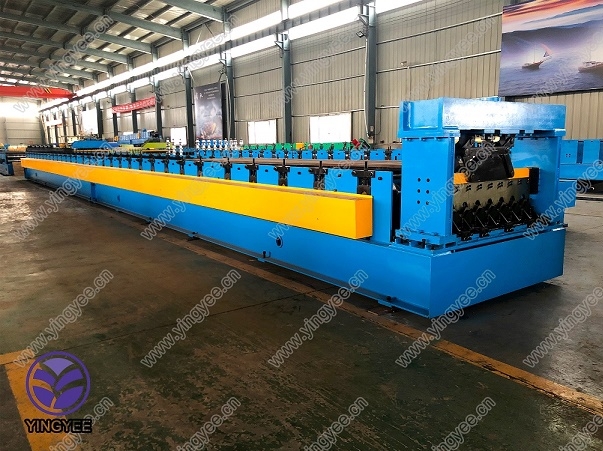
The Advantages of Steel Roof Roll Forming Machines
Steel roof roll forming machines play a pivotal role in the manufacturing process of steel roofing materials. These machines are designed to produce steel sheets that form the roof of buildings, providing long-lasting and durable structures that can withstand various environmental conditions. With the growing demand for sustainable and robust construction materials, understanding the functionality and advantages of steel roof roll forming machines is essential for manufacturers, builders, and architects alike.
What is a Steel Roof Roll Forming Machine?
A steel roof roll forming machine is a specialized piece of equipment used to create shaped steel components through a continuous process. The machine starts with either a coil or sheet of steel, which is fed into a series of rollers. As the metal passes through these rollers, it is gradually shaped into the desired profile, such as corrugated sheets, standing seam roofs, or shingles. The result is a precisely formed steel roof panel that can be easily installed on a variety of structures.
Key Advantages
1. Efficiency and Speed One of the most significant advantages of steel roof roll forming machines is their efficiency. These machines operate continuously, allowing for mass production of roofing materials without sacrificing quality. The rapid production cycle means that manufacturers can fulfill large orders in a shorter time frame, resulting in cost savings and improved operational efficiency.
2. Cost-Effectiveness By utilizing roll forming technology, manufacturers can reduce material waste significantly. The process is efficient in terms of material usage, and the production of steel panels in bulk further lowers the per-unit cost. Additionally, the durability of steel roofing reduces maintenance and replacement costs for end-users, making it a cost-effective choice in the long run.

3. Versatility Steel roof roll forming machines can be customized to produce various profiles and sizes, accommodating different architectural designs. Whether it’s for residential homes, commercial buildings, or industrial structures, these machines can be adjusted to meet specific project requirements. This versatility ensures that manufacturers can cater to diverse market demands.
4. Durability and Strength Steel roofing materials are known for their high strength and durability. They can withstand harsh weather conditions, including heavy rain, strong winds, and extreme temperatures, making them ideal for various climates. The structural integrity of steel ensures that roofs can last for decades without significant deterioration.
5. Sustainability With increasing awareness of environmental issues, steel roofs are gaining popularity due to their sustainability. Steel is recyclable, and using it for roofing reduces the need for new raw materials. Moreover, steel roofs can reflect solar energy, leading to improved energy efficiency in buildings, which is an essential consideration in modern architectural design.
6. Automation and Control Modern steel roof roll forming machines come equipped with advanced automation and control systems, allowing for precise measurement and consistent product quality. Operators can easily monitor the production process, adjust settings, and even diagnose issues in real time, ensuring a smooth and efficient operation.
Conclusion
In conclusion, steel roof roll forming machines are transforming the construction industry by providing efficient, cost-effective, and sustainable solutions for roofing needs. With their ability to produce high-quality, durable roofing materials quickly, these machines are essential for manufacturers looking to compete in today’s fast-paced market. As the demand for steel roofing continues to rise, the role of roll forming technology will only become more integral to the future of building construction.